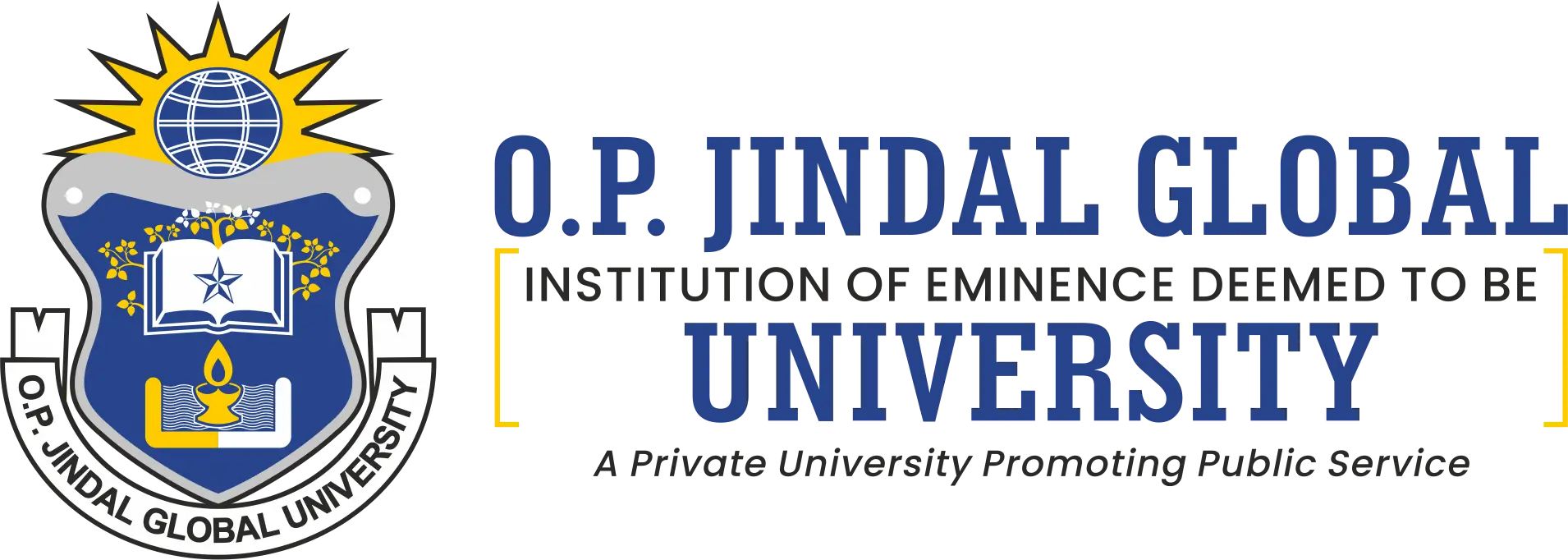Ethics Training
Fostering Ethical Leadership at JGU
At O.P. Jindal Global University (JGU), we are committed to cultivating a culture of integrity, accountability, and ethical excellence. Our comprehensive training programs empower faculty, staff, and students to navigate ethical challenges and uphold the highest standards of professional conduct. These initiatives align with all 17 Sustainable Development Goals (SDGs), particularly SDG 16: Peace, Justice, and Strong Institutions, which emphasizes the promotion of ethical, transparent, and inclusive institutions at all levels.
Staff Professional Development and Sustainability Training
JGU's commitment to sustainability extends to our staff through targeted professional development programs. These initiatives are designed to enhance leadership qualities, management capacity, and a commitment to professional ethics among practitioners from governments, corporations, and civil society organizations. Rooted in our Strategic Vision Report, these programs aim to foster leadership, ethical responsibility, and practical solutions for a sustainable future.
Our Approach to Sustainability Training
Our training programs integrate interdisciplinary learning, hands-on experiences, and global perspectives to equip participants with the knowledge and skills to address pressing environmental, social, and ethical issues. Key components include:
Interdisciplinary Learning: Combining insights from environmental science, public policy, ethics, and management to provide a holistic understanding of sustainability.
Practical Application: Engaging participants in real-world projects, case studies, and collaborative activities to translate theory into action.
Global Outlook: Partnering with leading institutions worldwide to offer cutting-edge insights and foster cross-cultural solutions.
Sulitest: Measuring Sustainability Literacy
To assess and enhance sustainability literacy among our staff, JGU incorporates the Sustainability Literacy Test (Sulitest) into our training framework. Developed under the United Nations’ Higher Education Sustainability Initiative (HESI), Sulitest evaluates knowledge across ecological, social, and economic dimensions of sustainable development.
Benefits of Sulitest at JGU:
- Enhances awareness of the United Nations Sustainable Development Goals (SDGs).
- Provides a benchmark for sustainability literacy among students, faculty, and professionals.
- Encourages critical thinking and informed decision-making in sustainability practices.
- By integrating Sulitest into our training programs, we ensure that our staff are well-equipped to contribute to JGU's mission of promoting ethical leadership and sustainable development.
Jindal Institute of Leadership Development and Executive Education (JILDEE)
The Jindal Institute of Leadership Development and Executive Education (JILDEE) is a premier center committed to nurturing future leaders who exemplify ethical values and leadership excellence. JILDEE offers a range of programs designed to instill a strong sense of ethical responsibility and moral values in participants. These programs address ethical dilemmas and promote ethical decision-making, ensuring that leaders prioritize integrity and social responsibility.
Key initiatives include:
- Youth Leadership Camps: These camps are designed to instill leadership qualities and ethical values in young individuals, promoting teamwork, problem-solving, and communication skills.
- Collaborative Programs: JILDEE collaborates with corporate organizations, non-governmental organizations (NGOs), academic institutions, and government agencies to deliver comprehensive leadership development programs and promote ethical leadership practices.
Commitment to Ethical Governance
JGU's dedication to ethical practices is further reinforced through various institutional frameworks:
Ethical Compliance Office: Oversees the development, implementation, and continuous refinement of policies, procedures, and guidelines that align with legal requirements, regulatory standards, and best practices in higher education.
Research Ethics Review Board (RERB): Ensures that research projects conform to global standards of ethical guidelines, providing a framework for researchers to engage deeply and critically with ethical questions arising from their research.
Office of Sustainability: Promotes sustainable practices and initiatives across the university campus, encompassing environmental conservation, resource management, social equity, and ethical governance.
Courses on Ethics
- The B.A. (Hons) Corporate Communication and Public Affairs at Jindal School of Journalism and Communication offers skill-based courses in ethics.
- The Bachelor of Design (B.Des.) at JGU is a professional practice course that includes new forms of social and technical knowledge: diversity, sustainability, digital representations and professional ethics.
- The B.A. (Hons.) Environment and Sustainable Development programme offers nuanced views on ecological, social and natural capital approaches to sustainability, fiscal implications of current economic regimes on the environment, systems thinking, impact of human population on the environment, environment impact assessments, international and domestic legal and policy structures, biodiversity and conservation, waste management and recovery, climate change, global warming, climate negotiations and their interactions with the issues of politics, ethics, society and public health.
- The B.Sc. (Hons.) Environment and Sustainable Development programme provides a robust understanding of the science, technology and practice of environment and sustainability. The programme on environmental protection, management and sustainable development is delivered through carefully designed foundational modules on interdisciplinary themes covering sciences, social sciences, ethics, environmental law and quantitative reasoning skills.
- JSPH offers a master’s in public health (MPH) where students also are inculcated with a sense of ethics and accountability at all levels (professional, personal and social).
- Research and Publication Ethics is a Doctoral Core course offered by the International Institute for Higher Education Research & Capacity Building (IIHEd).
- JGU offers a MOOC (Massive Open Online Course) on Ethics in Public Policy. This course helps students learn about the role that ethical, moral, and cultural principles play when lawmakers and public officials formulate and execute public policy. The course draws upon classical writings in political theory and contemporary cases on ethical dilemmas in public policymaking. It enables debates on various ethics themes such as justice, equality, fairness, individual liberty, free enterprise, charity, human rights, and minimising harm to others. It will also help grasp how these themes integrate into various decision-making models, such as the utilitarian approach, fairness and justice approach, and rights approach. For more information visit https://www.coursera.org/learn/ethics-in-public-policy



